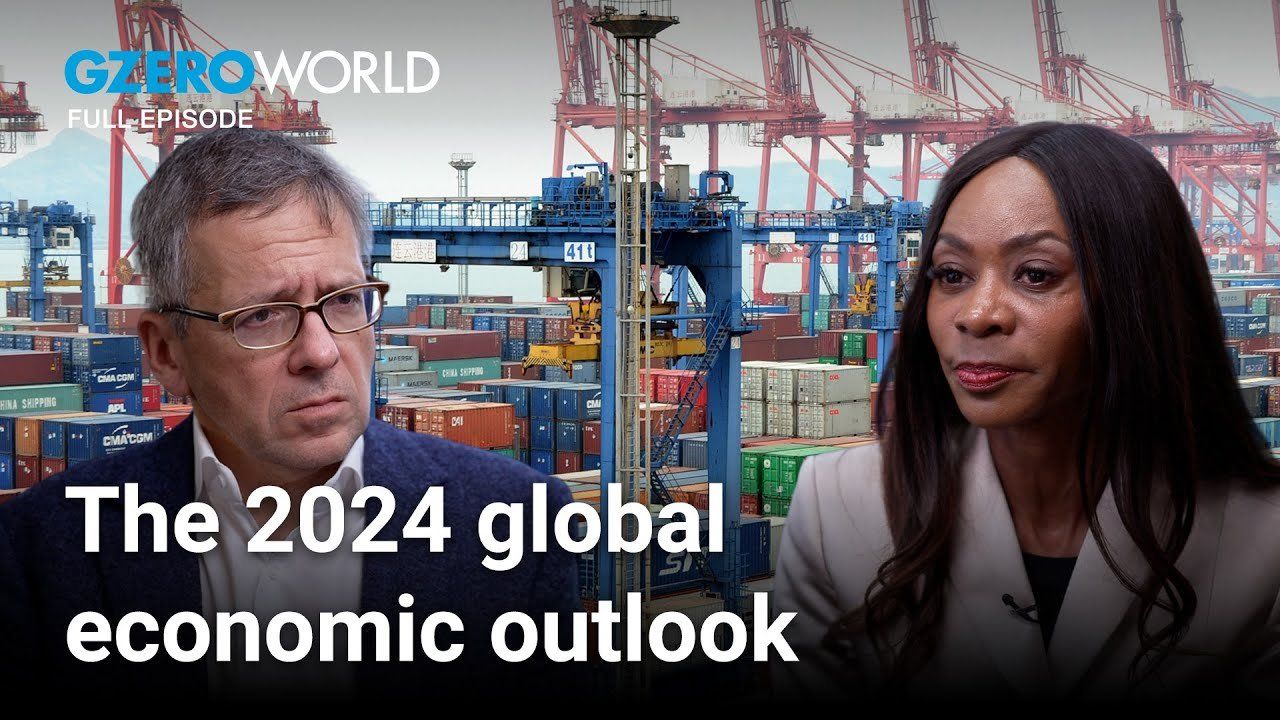GZERO World with Ian Bremmer
Is the global economy finally on the right track?

Is the global economy finally on the right track? | GZERO World with Ian Bremmer

How’s the global economy doing… really? When it comes to the world’s post-COVID recovery, it’s a tale of two economies: the United States and everyone else. On GZERO World, Ian Bremmer sits down with economist and author Dambisa Moyo for a hard look at the health of the world’s finances and the impact of geopolitical crises in Europe and the Middle East on trade flows and inflation.
Right now, US indicators are strong, but Germany and the UK are slipping into mild recessions, and China’s collapsing real estate sector, local government debt, and exodus of foreign investment is dragging the world’s second-largest economy into stagnation. Not to mention, Global South countries are holding record amounts of debt. So what does it all mean moving forward? Is the global economy still shaking off its post-Covid hangover or are some of these problems more entrenched?
“We need to be growing at 3% per year in order to double per capita incomes in a generation which is 25 years,” Moyo says, “Most of the global south is growing below that number, materially.”
Ian Bremmer and Dambisa Moyo unpack the confusing state of the global economy, China’s economic woes, and where they see the biggest potential for growth in developing economies during the next decade.
People in support of former South Korean President Yoon Suk Yeol rally near Seoul Central District Court in Seoul on Feb. 19, 2026. The court sentenced him to life imprisonment the same day for leading an insurrection with his short-lived declaration of martial law in December 2024.
65: The age of former South Korean President Yoon Suk Yeol, who was sentenced to life in prison on Thursday after being found guilty of plotting an insurrection when he declared martial law in 2024.
In an era when geopolitics can feel overwhelming and remote, sometimes the best messengers are made of felt and foam.
The Hungarian election is off to the races, and nationalist Prime Minister Viktor Orbán is facing his most serious challenger in 16 years.
Does skepticism rule the day in politics? Public opinion data collected as part of the Munich Security Conference’s annual report found that large shares of respondents in G7 and several BRICS countries believed their governments’ policies would leave future generations worse off.